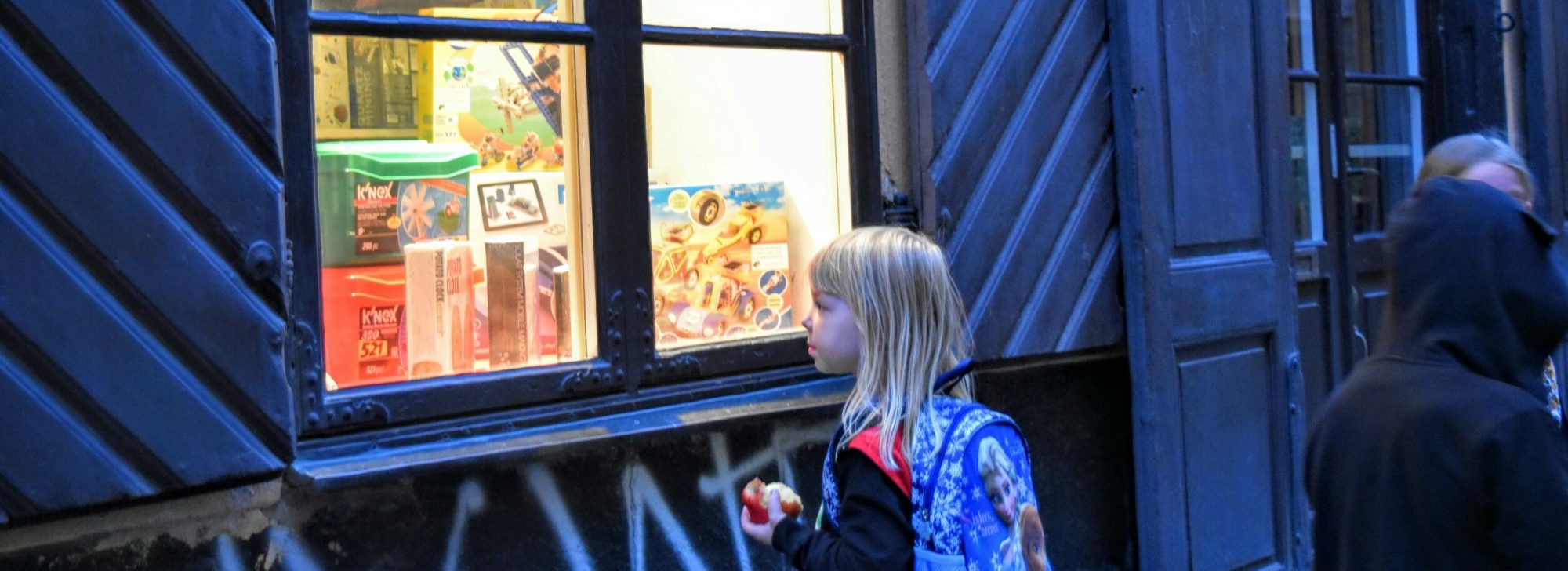スウェーデンのコロナ対応は、国際的に見て特異なように見えますが、科学(社会科学含む)と透明性の高い政府•当局への国民からの信頼に依拠して政策決定し、黙々と前進し、失策を調整するスウェーデン的な進歩性の表れとして見れば、ごく自然なものに思えます。もちろん老人介護施設や訪問介護現場での防護においては失敗しましたが、それについては政府や公衆衛生局が公に認め、人々も超短期で未曾有の事態に決定を迫られたゆえのこととして、政府に対する基本的な信頼が揺らいでいるようには見えません。
今回は、スウェーデン人の夫とストックホルムに移住して二女をもうけ、現在は休職し夫に帯同してロンドンに住み、スウェーデンとイギリスのコロナ対応の差を身近なものとして体験された白戸佑希子さんに、スウェーデンの進歩性という観点から、同国のコロナ対応についてお話ししていただきます。
● 日時 2020年9月10日(木)21:00 - 22:00
● 開催場所 オンライン(Zoomミーティング)
現在、年会費をお支払いいただいた会員の方のみをご参加可能としております。会員の方には、研究講座を録画したビデオを後ほどご視聴いただくこともできます。
ご入会ご希望の方は、
新規会員募集よりお申し込みください。
※会員としてご登録いただきましたメールアドレスに、当日の午前中までにZoomのアクセス情報をお送りいたします。
※当日の機器や通信状況によっては、配信に障害が発生することもございます。その場合にはご容赦いただきますよう、予めお願い申し上げます。
今回は、スウェーデン語文学翻訳者・エッセイストの久山葉子(くやま・ようこ)さんにご登壇いただきます。
久山さんは高校時代に1年間AFSでスウェーデンに留学され、東京のスウェーデン大使館商務部勤務を経て、2010年に日本人家族3人でスウェーデンに移住し、現地の高校で日本語を教えていらっしゃいます。ご著書にエッセイ『スウェーデンの保育園に待機児童はいない』、またミステリを中心にスウェーデン文学を多数翻訳されています。
スウェーデンではコロナ政策の一環として、3月17日に教育大臣から高校・大学・成人学校に対して、速やかにオンライン授業に移行するよう指示が出されました。2011年よりスウェーデンの高校で第二外国語のひとつとして日本語を教えていらっしゃるご経験を踏まえて、元々どのくらいIT化が進んでいたのか、1日でオンラインに移行したと聞いているが、それは本当なのか、実際に授業をやってみてメリット・デメリットをどのように感じられたのか、生徒は満足感を得られたのかといったお話をいただきます。また、コロナでますます必要性を感じたKällkritik(ファクトチェック)についての高校生の感覚についてのお話もうかがいます。
● 日時 2020年7月28日(火)18:00 - 19:00
● 場所 オンライン(Zoomミーティング)
● 視聴に当たっては、下記のフォームにて事前申込が必要です。
※なお今回より、研究講座をご視聴いただけるのは、会費をお支払いいただいている会員の方のみとさせていただくことといたしました。オンラインの場合は、非会員の方からその場で参加費を徴収できない(事前にお振込みいただくなどは可能ですが、キャンセルされた場合などの手続きが困難です)ことによる措置ですので、何とぞご容赦ください。
▼お申込みいただいた会員の方が、会費をお支払いいただく必要のある場合には、事務局からメールにてご連絡させていただきます。
▼非会員の方が申し込まれた場合には、事務局からメールにてご入会のご案内をさせていただきます。
※ご登録いただきましたメールアドレスに、当日の午前中にZoomのアクセス情報をお送りいたします。
※当日の機器や通信状況によって、開始が遅れたり、個々の配信に障害が発生したり、場合によっては中止することもありますので、その旨を予めご了解の上、お申し込みください。
【お申し込み受け付けは終了いたしました。】
現下の新型コロナウィルスによる緊急事態宣言を踏まえて、本研究所は当分の間、オンラインによる無料の研究講座を開催いたします。
今回は、ストックホルム大学教育学研究科で修士号(国際比較教育)を取得され、現在は独立行政法人国立青少年教育振興機構 青少年教育研究センターの研究員として、若者の社会参画について、ヨーロッパ(特にスウェーデン)の若者政策、ユースワークの視点からご研究をされている両角達平さんをお迎えして、スウェーデンの若者の社会参画に関することや、最近共同翻訳された、スウェーデンの主権者教育の教材『政治について話そう!Prata Politik』についてのお話をおうかがいします。
本研究所として視聴料はいただきませんが、もしよろしければ両角さんが現在行っているプロジェクト「スウェーデンの主権者教育の教材「政治について話そう」和訳版を冊子化して届けたい!」へのご協力をお願い申し上げます。
https://camp-fire.jp/projects/view/250619
● 日時 2020年5月27日(水)18:00 - 19:00
● 場所 オンライン(Zoomミーティング)
● 視聴料 無料、ただし下記のフォームにて、事前登録が必要です。
※ご登録いただきましたメールアドレスに、当日の午前中までにZoomのアクセス情報をお送りいたします。
※当日の機器や通信状況によって、開始が遅れたり、個々の配信に障害が発生したり、場合によっては中止することもありますので、その旨を予めご了解の上、お申し込みください。
<<<おかげさまで定員に達しましたので、締め切りとさせていただきます。次回のご参加をお待ちしております。>>>
今回はアジア・コレギウム・ムジクム(Asia Collegium Musicum)によるスウェーデン・バロック音楽の演奏会です。
芸術監督の飯田大介氏より、以下のコメントをいただいております。
「スウェーデンの巨匠作曲家ルーマンについて日本で詳細に彼の経歴を知る方はあまりスウェーデンほど多くないかもしれない。しかし、イギリス留学を経て母国に帰国した彼は正にバロック時代のスウェーデンを代表する音楽家として歩んだ事は歴史が語っている。師匠から影響を受けた若きルーマンの知られざる名曲をどうぞ。」
【プログラム】
ルーマン トリオ・ソナタ
ヘンデル トリオソナタOp.2-2 他
● 日時 2020年2月14日(金)19:00 - 19:50 (開場 18:30)
● 場所 スウェーデン大使館1階ベルイマンホール
| 【ご参加に際してのご注意】
※音響の関係で、今回はホールで行います。そのため、座席はパイプ椅子等が30余席と5~6人掛けのベンチのみとなります。
すでに座席は満席になりました。引き続きご参加を受け付けますが、立ち見となります旨、ご了解ください。
※ホールは空調の効きがよくありませんので、温かい服装でお越しください。
|
● 共催 アジア芸術国際交流委員会
● 参加料 研究所会員は無料 一般 1,500円、学生 1,000円(当日受付にて)
● お申込みは、以下のフォームよりお願いいたします。
毎年恒例のごとく実施させていただいております、明治大学国際日本学部鈴木ゼミ生の卒業発表も、今年で9回目となりました。
今年の卒業生たちの共通テーマは「政治意識」ということで、グループ発表から個人発表まで、以下の様々なテーマでの卒業研究の発表をさせていただきます。
どうぞよろしくお願い申し上げます。
『なぜ日本ではグレタトゥーンベリが生まれないのか』
『日本の「民主主義」とスウェーデンの「民主主義」』
『スウェーデンにおける男女の「対等性」』
『デモクラティックな思想と貧富の格差』
『「IKEAと無印」-政治文化と企業文化の共通性の研究』
『投票率85%の国では小学生に何を教えているのか』
【各タイトルに、発表資料がリンクされています】
● 日時 2020年1月21日(火)19:00 - 21:00 (開場 18:30)
● 場所 スウェーデン大使館1階ノーベルオーディトリウム
● 報告者 明治大学国際日本学部鈴木ゼミ学生
● 参加料 研究所会員は無料 一般 1,500円、学生 1,000円(当日受付にて)

